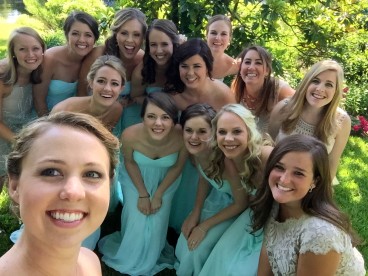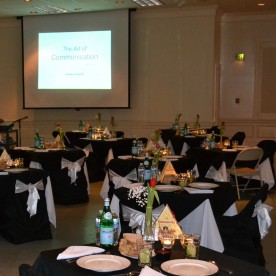Jay Huff–as in, Jay Huff of the U.Va. National Championship Basketball Team–was in the house last week.

Well, not my house.
Although he did stop by for a bit. And I am pretty sure Minnie’s in love…

Jay came to Virginia Beach with his dad, Coach Mike Huff, as part of a speaker series our church hosts every year. And even though I said I was taking a break from weekly blogging this summer (and I really am), and even though I know some of you don’t give a rip about basketball (that’s okay; people vary), the stuff these guys talked about was just too good not to share.
Stuff like what humility looks like, especially when life isn’t fair.
Evidently, Jay has a super high radar for what’s right and what’s wrong–and when he sees an offense, he feels compelled to speak up. Which sounds great in theory, but doesn’t work so well when you’re hooping it up and the “wrong” is a bad call from the ref. As a high school player, Jay often protested such calls–and wound up setting a record for technical fouls.
Coach Huff helped put things in perspective.
“Nobody,” Mike told his son, “got a worse set of calls than Christ did. He got as bad a call as you can get; he had a perfect life, and yet he was crucified for my mistakes.
“And he didn’t say a word. He stood there and he took it.”
Those words made an impact, ultimately leading Jay to show respect for officials and embrace humility–which, as it turns out, is one of Coach Tony Bennett’s Five Pillars.

Another life lesson came in a sporting goods store.
As a teenager, Jay wore size 15 shoes (he’s a 17 now), and finding them was not always easy. Mike recalled one father-son shopping trip when Jay couldn’t locate a single pair in his size.
“This world isn’t made for me,” the young man sighed.
“You were not made for this world,” Mike gently replied.
Even if Jay didn’t know the exact biblical reference (verses like John 15:19 and Philippians 3:20), he got the point. And when asked what advice he might give to the young people in the audience on Sunday night, he shared his own experience–both at U.Va. and in high school–with not “fitting in.” Even winning a championship, he said, doesn’t change the fact that life, for a Christian, is not always easy.
“You’re going to be a misfit in a lot of situations,” Jay told the crowd. “Get ready for that.”

That “misfit” comment really hit home with me; I wrote about my own struggles in Praying the Scriptures for Your Teens. In fact, it wasn’t until I got to college that I began to feel like I’d finally found “my people.” And, much to my delight, two of them–Barbie and Susan, pictured above–showed up to hear Jay speak!
(And yes, Jay really is 7’1.”)
(I thought if I wore 3″ heels that would help. But…no.)
Perhaps my favorite takeaway from the night was about our identity.
“If it’s all about basketball,” Mike said, “or whatever your activity might be, if that’s where you find your identity, then your life is going to be a whole series of ups and downs. When you’re good–when you have a great game–everybody’s gonna be happy; you’re gonna be happy. If you have a bad game or a bad season, or you get cut from the team or whatever, then you’re devastated.”
By contrast, he said, “if you have an identity in Christ, then those things are just events that happen along the path.”
Jay agreed, saying that he wanted to be known for more than being a basketball player–even if he realizes his goal of playing in the NBA.
“I see a lot of people,” he said, “who get so caught up in basketball and the highlight tapes and the social media posts and everything like that…but when that becomes the sole thing that you feel like you’re valued for, that’s when that goes wrong.
“And so, I’ve always thought that I’d much rather be a good friend. A good son. A good boyfriend–hopefully.”
(Sorry ladies; he’s taken.)

“I’d rather be known for that,” he continued, “because one day all the basketball things that have happened, all the championships, all of that–they won’t mean that much to me. But what will mean a lot are the friendships and relationships I’ve built up over the years, and how I’ve loved people and how people have hopefully loved me.
“At the end of my life, I don’t want to look back and have basketball be the highlight.”
Coming from a national champion, those are some powerful words.
And there’s more where they came from–plus commentary on everything from what Coach Bennett tells his players at halftime (“But you can’t tell the other coaches I told you!” Jay joked), to what U.Va.’s prospects look like for next year, to whether or not Ty Jerome meant to miss that free throw.
Did he?
If you want to find out (or if you just want to know what other great things the Huffs shared), click here to download the whole interview.
And if you just want a prayer for those times when you or someone you love feels like a misfit, why not echo the prayer Jesus prayed for all his disciples, right after he said that we “do not belong to the world,” any more than he did?
Heavenly Father,
We belong to you. Protect us by the power of your name. Fill us with joy, make us holy, and teach us your word. And may we experience such perfect unity that the world will know that you sent Jesus, and that you love us as much as you love him. (Excerpted from John 17:9-22)
Amen
❤️



























